Latin America Bureau is a UK Registered Charity (No: 1113039) and, as Latin America (Research and Action) Limited, a Company limited by guarantee (No: 01488712). LAB is an ever-expanding network of journalists, activists, translators, writers, editors and thinkers.
Volunteers & Translators
LAB sources material in Spanish, Portuguese and French, as well as English. We have a panel of translators who have transcribed and translated hundreds of interviews and testimonies for LAB’s books and webinars, as well as articles for LAB’s website. LAB’s work would not be possible without its dedicated and talented team of volunteers. See more about getting involved here.
Editorial Team
Mike Gatehouse, Sue Branford, Tom Gatehouse, Linda Etchart, Nick Caistor, Louise Morris, Ali Rocha, Emily Gregg, Rebecca Wilson, Karoline Pelikan (Films Editor), Kinga Harasim (LMN Blog), Matty Rose (Agência Pública Blog), Liam Sousa Casey.
Rebecca Wilson
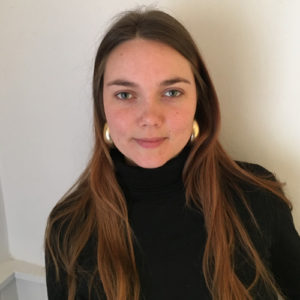 Rebecca Wilson is LAB’s Managing Editor. She commissions and edits articles for the website, organises volunteer activities, assists on LAB projects and helps with fundraising. During her degree at University of Bristol, Rebecca worked at El Tiempo national broadsheet in Colombia, where she wrote a blog and covered the Peace Process, justice marches, Nobel Prize ceremony and the 2016 US elections. She also worked with a documentary production company. Rebecca has written about Latin American politics and culture for LAB, Sounds and Colours, The White Review and BristoLatino – where she was Editor-in-Chief – and she regularly writes about travel, film and music. Rebecca also volunteers with FLAWA (the Festival of Latin American Women in Arts).
Rebecca Wilson is LAB’s Managing Editor. She commissions and edits articles for the website, organises volunteer activities, assists on LAB projects and helps with fundraising. During her degree at University of Bristol, Rebecca worked at El Tiempo national broadsheet in Colombia, where she wrote a blog and covered the Peace Process, justice marches, Nobel Prize ceremony and the 2016 US elections. She also worked with a documentary production company. Rebecca has written about Latin American politics and culture for LAB, Sounds and Colours, The White Review and BristoLatino – where she was Editor-in-Chief – and she regularly writes about travel, film and music. Rebecca also volunteers with FLAWA (the Festival of Latin American Women in Arts).
Mike Gatehouse
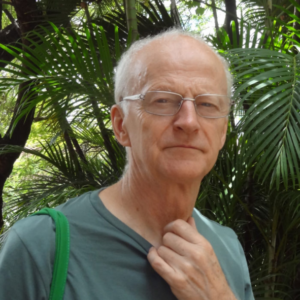 Mike Gatehouse lived in Chile during the Popular Unity government of Salvador Allende. After the military coup in 1973 he returned to the UK and worked for Chile Solidarity Campaign and later El Salvador Committee for Human Rights and Nicaragua Health Fund. He is co-author of LAB books Soft Drink, Hard Labour – Guatemalan Workers Take On Coca-Cola and In the Mountains of Morazán – Portrait of a Returned Refugee Community in El Salvador. Since 2010 he has been a member of the LAB Editorial Team and publishes articles on LAB’s website. He was a member of the team that published Voices of Latin America – Social Movements and the New Activism in January 2019, and helps commission new books for LAB.
Mike Gatehouse lived in Chile during the Popular Unity government of Salvador Allende. After the military coup in 1973 he returned to the UK and worked for Chile Solidarity Campaign and later El Salvador Committee for Human Rights and Nicaragua Health Fund. He is co-author of LAB books Soft Drink, Hard Labour – Guatemalan Workers Take On Coca-Cola and In the Mountains of Morazán – Portrait of a Returned Refugee Community in El Salvador. Since 2010 he has been a member of the LAB Editorial Team and publishes articles on LAB’s website. He was a member of the team that published Voices of Latin America – Social Movements and the New Activism in January 2019, and helps commission new books for LAB.
Karoline Pelikan
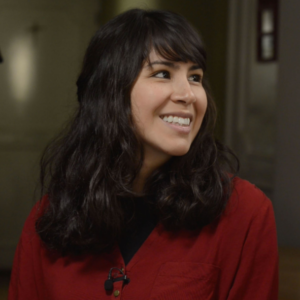
Karoline Pelikan is a German-Peruvian documentary filmmaker and LAB’s Head of Film Content. Her production company, Pelikan Pictures, creates films focusing on identity, gender violence and LGBTQI+ rights which have been screened at international film festivals. In 2018, Karoline founded social arts project EmpoderArte, which creates safe spaces for women across Peru and uses audiovisual tools to tell creative stories that focus on regional issues. The project won support from the Peruvian Ministry of Culture in 2020. She teaches similar film workshops for Latin American women in the UK focusing on bicultural identity, racism and gender stereotypes. Karoline is the founder of Cine Latino, an organisation which promotes the work of independent Latin American filmmakers in the UK. In collaboration with independent cinemas, academic institutions, and in partnership with other organisations such as LAB, Karoline’s main goal is to shed light on socio-political issues in the region that are creatively told through innovative Latin American films.
Sue Branford
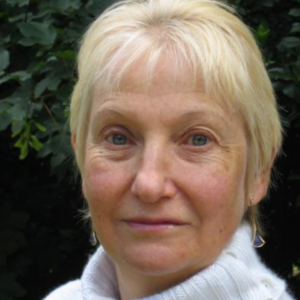 Sue Branford began her career as a journalist by working in Brazil in the 1970s as correspondent for The Financial Times, The Economist and The Observer. On returning to the UK, she worked for the BBC World Service and since then she has returned frequently to Brazil on reporting trips for the Times, the Guardian and Mongabay. She specialises in environmental reporting, particularly on the Amazon. Sue has published five books, including The Last Frontier – Fighting over Land in the Amazon and Cutting the Wire – the Story of the Landless Movement in Brazil, which was awarded the Vladimir Herzog human rights prize. She is currently involved in a research project in the Amazon and is a volunteer editor at LAB.
Sue Branford began her career as a journalist by working in Brazil in the 1970s as correspondent for The Financial Times, The Economist and The Observer. On returning to the UK, she worked for the BBC World Service and since then she has returned frequently to Brazil on reporting trips for the Times, the Guardian and Mongabay. She specialises in environmental reporting, particularly on the Amazon. Sue has published five books, including The Last Frontier – Fighting over Land in the Amazon and Cutting the Wire – the Story of the Landless Movement in Brazil, which was awarded the Vladimir Herzog human rights prize. She is currently involved in a research project in the Amazon and is a volunteer editor at LAB.
Tom Gatehouse
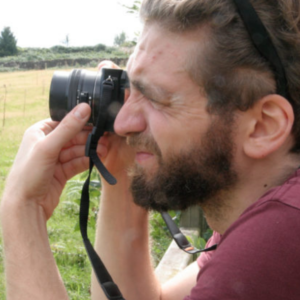 Tom Gatehouse is a writer and translator who has lived in Argentina, Spain, and Brazil. He holds an MPhil in Latin American Studies from the University of Cambridge. He has written a blog and articles for LAB and Red Pepper and his translations have appeared in Folha de São Paulo, Agência Pública, and Tales and Trails, Lisbon, a recent collection of short stories and other writings. He was the Editor of LAB’s book Voices of Latin America – Social Movements and the New Activism, published in January 2019, for which he wrote the introduction and the Chapter on Mining and Communities. His 2023 book The Heart of Our Earth: Community Resistance to Mining in Latin America has just been published by LAB.
Tom Gatehouse is a writer and translator who has lived in Argentina, Spain, and Brazil. He holds an MPhil in Latin American Studies from the University of Cambridge. He has written a blog and articles for LAB and Red Pepper and his translations have appeared in Folha de São Paulo, Agência Pública, and Tales and Trails, Lisbon, a recent collection of short stories and other writings. He was the Editor of LAB’s book Voices of Latin America – Social Movements and the New Activism, published in January 2019, for which he wrote the introduction and the Chapter on Mining and Communities. His 2023 book The Heart of Our Earth: Community Resistance to Mining in Latin America has just been published by LAB.
Katie Jones
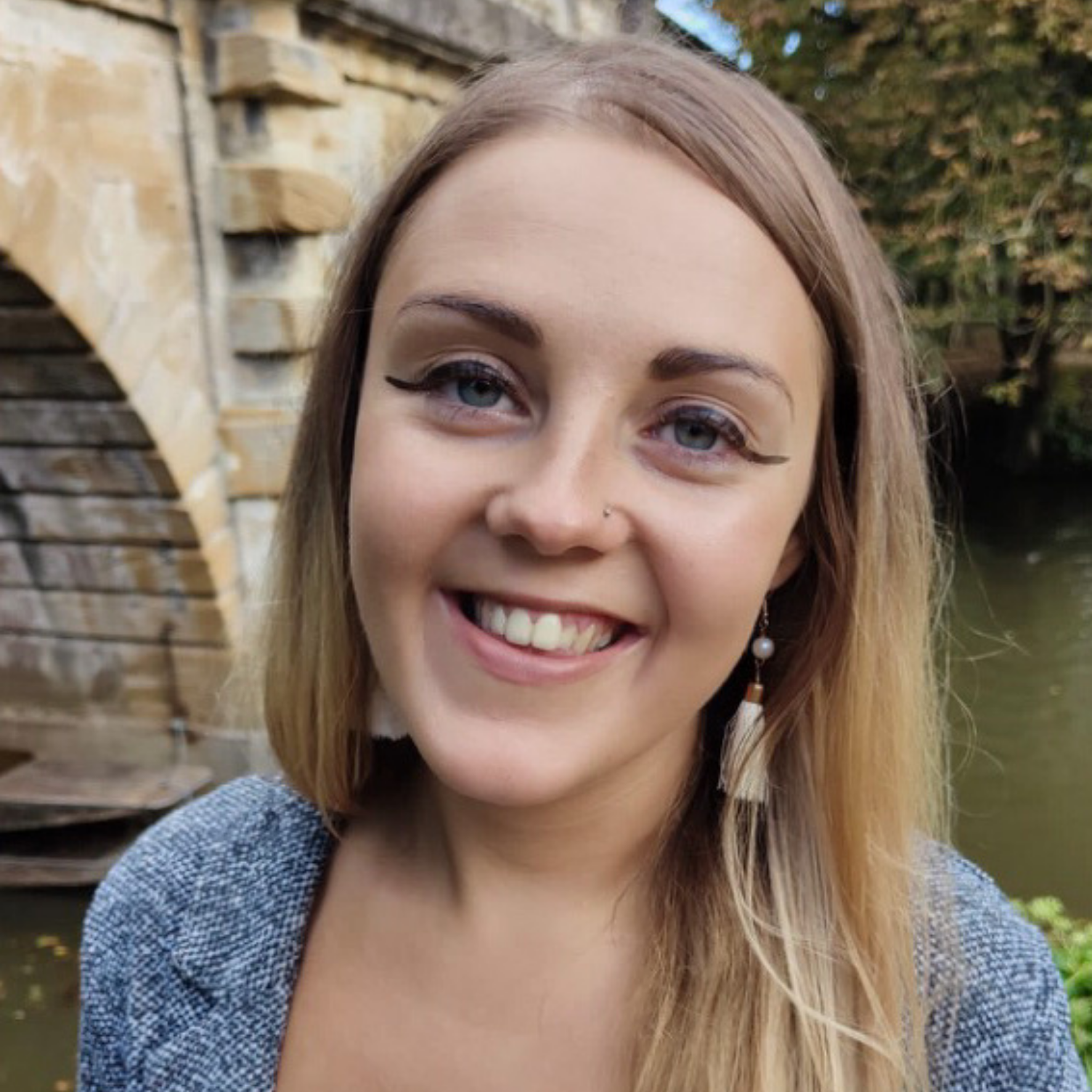 Katie Jones has lived and worked in Mexico as an English teacher in the state of Puebla. Until the Covid-19 pandemic took hold, she was teaching in Costa Rica and was an active member of a local NGO aiming to assist the quality of education for children in an underprivileged barrio. She worked as an investigator for InSight Crime, a foundation specialised in the study of organised crime in Latin America and the Caribbean, and has a Master’s in Latin American Studies at the University of Oxford. Katie launched LAB’s Environmental Defenders series.
Katie Jones has lived and worked in Mexico as an English teacher in the state of Puebla. Until the Covid-19 pandemic took hold, she was teaching in Costa Rica and was an active member of a local NGO aiming to assist the quality of education for children in an underprivileged barrio. She worked as an investigator for InSight Crime, a foundation specialised in the study of organised crime in Latin America and the Caribbean, and has a Master’s in Latin American Studies at the University of Oxford. Katie launched LAB’s Environmental Defenders series.
Antonella Navarro
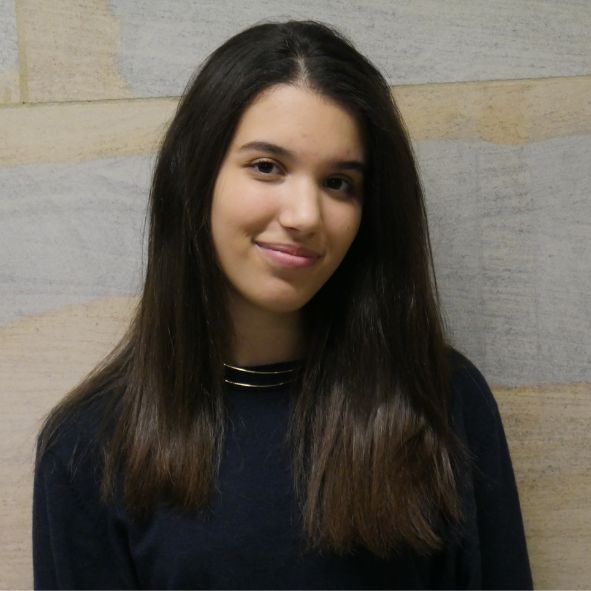 Antonella Navarro volunteers at LAB in fundraising and communications. She assisted on LAB’s Covid-19: Loss, Survival, Recovery, Transformation project, researching, interviewing, and translating for the newly published digital Voices chapter. She has also written about the Venezuelan-Colombian migration crisis and is currently researching corruption in the region. Originally from Venezuela, Antonella has lived in Germany, Spain, and Jordan. She is currently studying International Relations at the University of Essex, passionate about understanding Latin America’s politics, migration, and economic development.
Antonella Navarro volunteers at LAB in fundraising and communications. She assisted on LAB’s Covid-19: Loss, Survival, Recovery, Transformation project, researching, interviewing, and translating for the newly published digital Voices chapter. She has also written about the Venezuelan-Colombian migration crisis and is currently researching corruption in the region. Originally from Venezuela, Antonella has lived in Germany, Spain, and Jordan. She is currently studying International Relations at the University of Essex, passionate about understanding Latin America’s politics, migration, and economic development.
Liam Sousa Casey
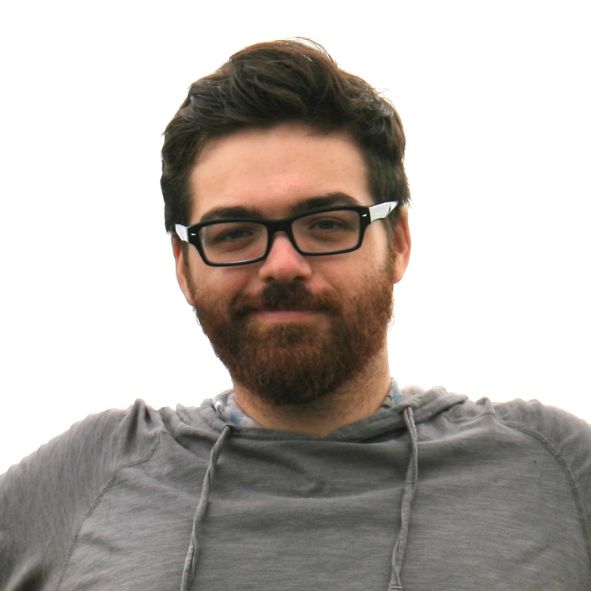 Liam Sousa Casey volunteers at LAB as an editor and contributor. He has lived and worked in Colombia, first as an English teacher, later as a regional admissions adviser. He now works for an education start-up as a policy and project officer, exploring opportunities for digital learning in Southeast Asia, Latin America, and elsewhere. Liam has a master’s degree in International Relations of the Americas from University College London. In addition to his passion for education, he is keenly interested in civil-military relations and political violence in the region.
Liam Sousa Casey volunteers at LAB as an editor and contributor. He has lived and worked in Colombia, first as an English teacher, later as a regional admissions adviser. He now works for an education start-up as a policy and project officer, exploring opportunities for digital learning in Southeast Asia, Latin America, and elsewhere. Liam has a master’s degree in International Relations of the Americas from University College London. In addition to his passion for education, he is keenly interested in civil-military relations and political violence in the region.
Emily Gregg
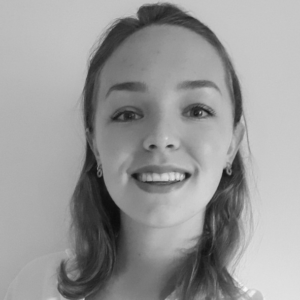 Emily Gregg is a LAB correspondent and author, and manager of the ‘Covid-19: Loss, Survival, Recovery, Transformation’ project. Currently based in Concepción, Chile, Emily also lived in Arica, Chile, until the pandemic broke out and she returned to the UK, from where she produced a series of regional Covid updates for LAB. These were developed, alongside extensive interviews with activists, social leaders, artists, and educators from across the continent for a new digital chapter of LAB’s Voices of Latin America book, about how communities survived the pandemic and supported each other. Emily was also author of the Student Revolution chapter of the Voices of Latin America project. She has a Bachelor’s Degree in International History and a MSc in International Relations from LSE.
Emily Gregg is a LAB correspondent and author, and manager of the ‘Covid-19: Loss, Survival, Recovery, Transformation’ project. Currently based in Concepción, Chile, Emily also lived in Arica, Chile, until the pandemic broke out and she returned to the UK, from where she produced a series of regional Covid updates for LAB. These were developed, alongside extensive interviews with activists, social leaders, artists, and educators from across the continent for a new digital chapter of LAB’s Voices of Latin America book, about how communities survived the pandemic and supported each other. Emily was also author of the Student Revolution chapter of the Voices of Latin America project. She has a Bachelor’s Degree in International History and a MSc in International Relations from LSE.
Correspondents
Ali Rocha, Linda Etchart, Kinga Harassim, Grace Livingstone, Marilene Cardoso Ribeiro, Marcela López Levy, Jan Rocha, Malcolm Boorer, David Lehmann, Dan Baron Cohen, Antonia Burchard-Levine, Pablo Navarrete, Marcos Colón, and many others…
Linda Etchart
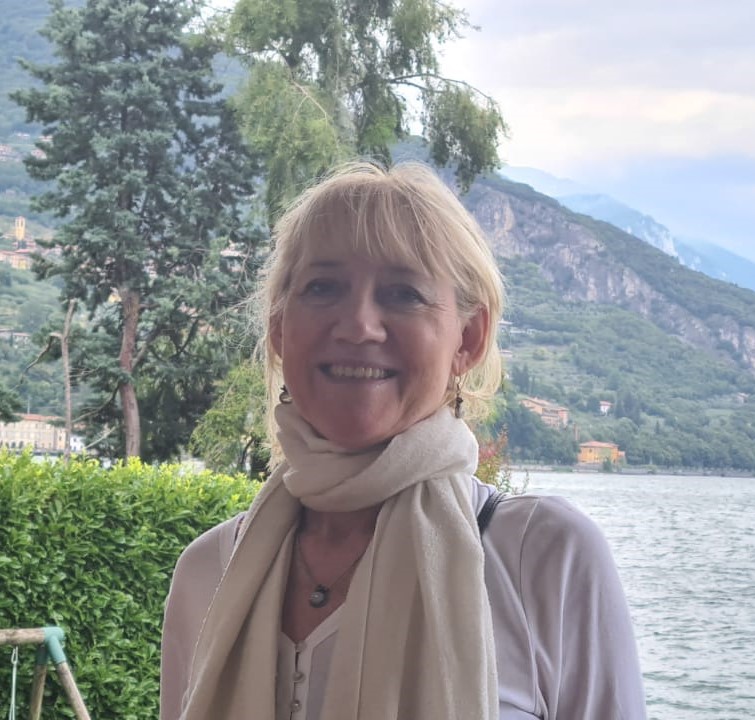
Dr Linda Etchart has a first degree in Latin American Studies from University College London, a Masters in International Relations from the University of Kent, and a PhD in Management from the School of Business, Economics and Informatics, Birkbeck College, University of London. She has lived and worked in several countries of Latin America, including in Mexico and Cuba – where she was a translator for Prensa Latina news agency. She was Caribbean editor of the Latin American Monitor, an editor at Pluto Press, and a consultant for the Commonwealth Secretariat, where she contributed to Commonwealth publications in conflict transformation. She is currently a lecturer in Human Geography at Kingston University, and Senior Co-Chair of the Environment Section of the Latin American Studies Association (LASA), based in Pittsburgh, Pennsylvania. Dr Etchart is a regular contributor LAB’s Environmental Defenders series and author of Chapter 5, “Indigenous Peoples and the Rights of Nature”, in LAB’s 2019 book, Voices of Latin America: Social Movements and the New Activism. Her 2022 book, Global Governance of the Environment, the Rights of Nature and Indigenous Peoples: Extractive Industries in the Ecuadorian Amazon, was published by Palgrave Macmillan.
Marilene Cardoso Ribeiro
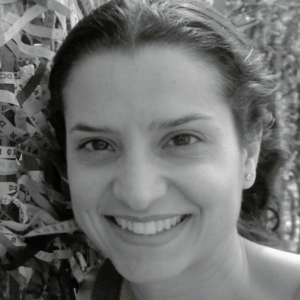 Marilene Cardoso Ribeiro is an award-winning photographer and ecologist whose works investigate the relationship between human beings and nature concerning contemporary issues. She holds aMSc in Ecology, and Wildlife Conservation and Management awarded by the Federal University of Minas Gerais (Brazil), and a PhD in photography awarded by the University of Brighton (UK). Ribeiro’s works focus on Brazil as a window to discuss worldwide phenomena. www.marileneribeiro.com
Marilene Cardoso Ribeiro is an award-winning photographer and ecologist whose works investigate the relationship between human beings and nature concerning contemporary issues. She holds aMSc in Ecology, and Wildlife Conservation and Management awarded by the Federal University of Minas Gerais (Brazil), and a PhD in photography awarded by the University of Brighton (UK). Ribeiro’s works focus on Brazil as a window to discuss worldwide phenomena. www.marileneribeiro.com
Ali Rocha
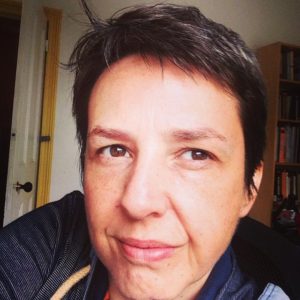
Ali Rocha is a multimedia journalist and human rights activist, focusing on state violence in Brazil. Born in São Paulo, she has worked closely with grassroots movements fighting police violence in São Paulo and Rio de Janeiro. Ali has worked as a producer and correspondent in Brazil and directs the São Paulo-based production company Alfixit, which specialises in providing content and services for international broadcasters covering news stories and making documentaries in Brazil. Ali is a key contributor to the project #Brazil Matters, a social media platform for raising awareness of Brazilian issues. From politics and economy to environment and culture, Brazil Matters promotes the rights and fights of women, workers, Black, Indigenous and LGBTQI+ people in Brazil. Ali regularly writes and contributes to LAB as a journalist and speaker.
Antonia Burchard-Levine
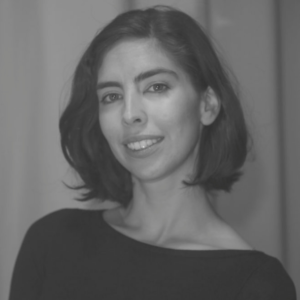
Antonia Burchard-Levine specialises in urban transportation and mobility, urban land development, housing and livelihoods, and infrastructure financing. She is particularly interested in urban social movements, issues of access to the city and its resources, and the range of processes that shape cities and their inhabitants. Antonia is currently based in Berlin and consults on international development projects as an urban development specialist.
Marcos Colón
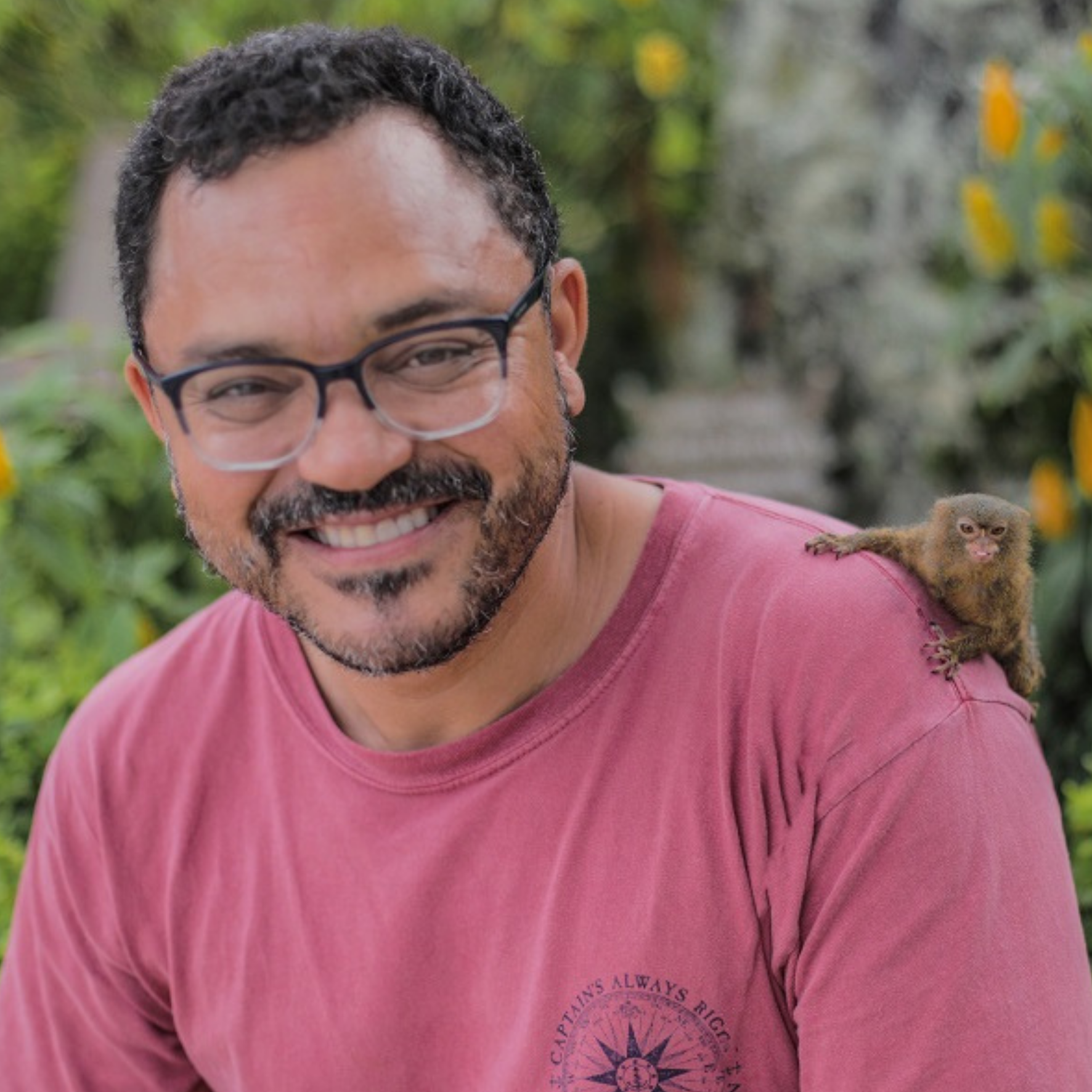 Marcos Colón coordinates the Portuguese Program of the Department of Modern Languages and Linguistics at Florida State University and has a doctorate in cultural studies from the University of Wisconsin-Madison. Colón has produced and directed two documentary films that represent diverse perspectives on humanity’s complex relations with the natural world: Beyond Fordlândia: An Environmental Account of Henry Ford’s Adventure in the Amazon (2018) and Zo’é (2018), based on his experiences with the Zo’é tribe, an Amazonian indigenous community that has had little to no contact with the outside world. Colón is the editor and creator of Amazonia Latitude, a digital environmental magazine and LAB partner.
Marcos Colón coordinates the Portuguese Program of the Department of Modern Languages and Linguistics at Florida State University and has a doctorate in cultural studies from the University of Wisconsin-Madison. Colón has produced and directed two documentary films that represent diverse perspectives on humanity’s complex relations with the natural world: Beyond Fordlândia: An Environmental Account of Henry Ford’s Adventure in the Amazon (2018) and Zo’é (2018), based on his experiences with the Zo’é tribe, an Amazonian indigenous community that has had little to no contact with the outside world. Colón is the editor and creator of Amazonia Latitude, a digital environmental magazine and LAB partner.
Kinga Harasim
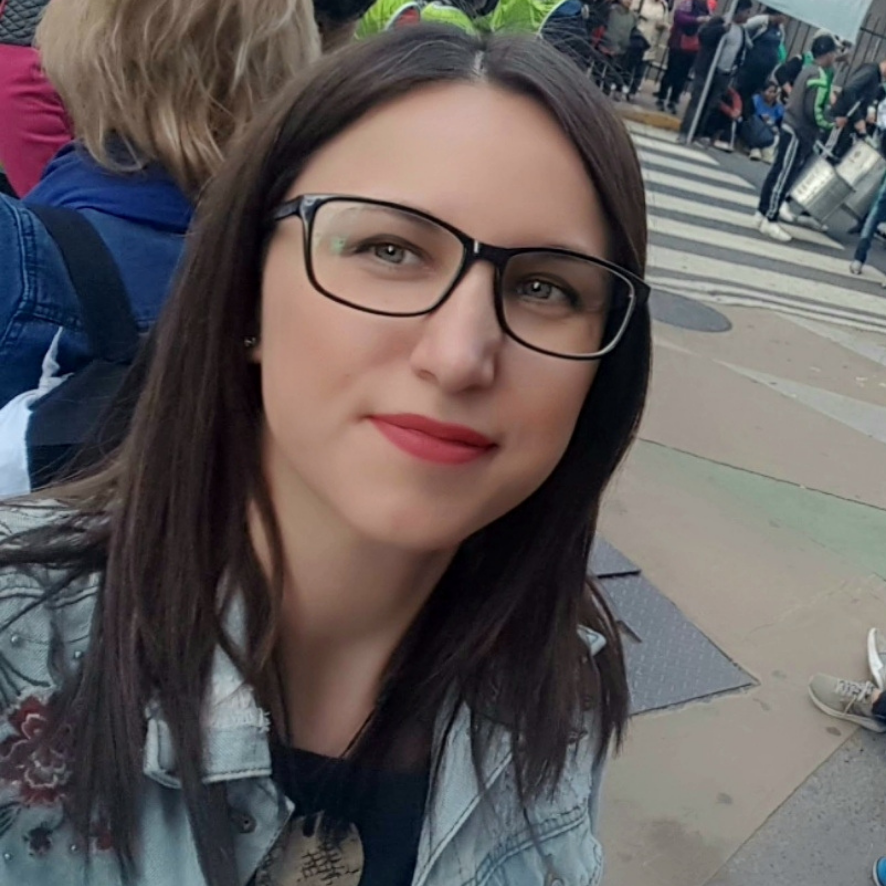 Kinga Harasim studied Spanish and Global Studies at Nottingham Trent University, with study placements at Northern Arizona University and the University of the Basque Country. Kinga lived in Argentina and worked in the National Secretariat for Children, Youth and Family (SENAF) of El Bolsón, an institution dedicated to the comprehensive protection of children’s and adolescents’ rights. She conducted independent research on violence against women in Argentina, where she had the opportunity to collaborate with various women’s grassroots movements, including Ni Una Menos. Kinga is most interested in international development issues and the global structures of dominance that shape contemporary Latin American realities. She conducts research for LAB on mining projects in Latin America and contributes to LAB’s London Mining Network Blog.
Kinga Harasim studied Spanish and Global Studies at Nottingham Trent University, with study placements at Northern Arizona University and the University of the Basque Country. Kinga lived in Argentina and worked in the National Secretariat for Children, Youth and Family (SENAF) of El Bolsón, an institution dedicated to the comprehensive protection of children’s and adolescents’ rights. She conducted independent research on violence against women in Argentina, where she had the opportunity to collaborate with various women’s grassroots movements, including Ni Una Menos. Kinga is most interested in international development issues and the global structures of dominance that shape contemporary Latin American realities. She conducts research for LAB on mining projects in Latin America and contributes to LAB’s London Mining Network Blog.
Natasha Tinsley
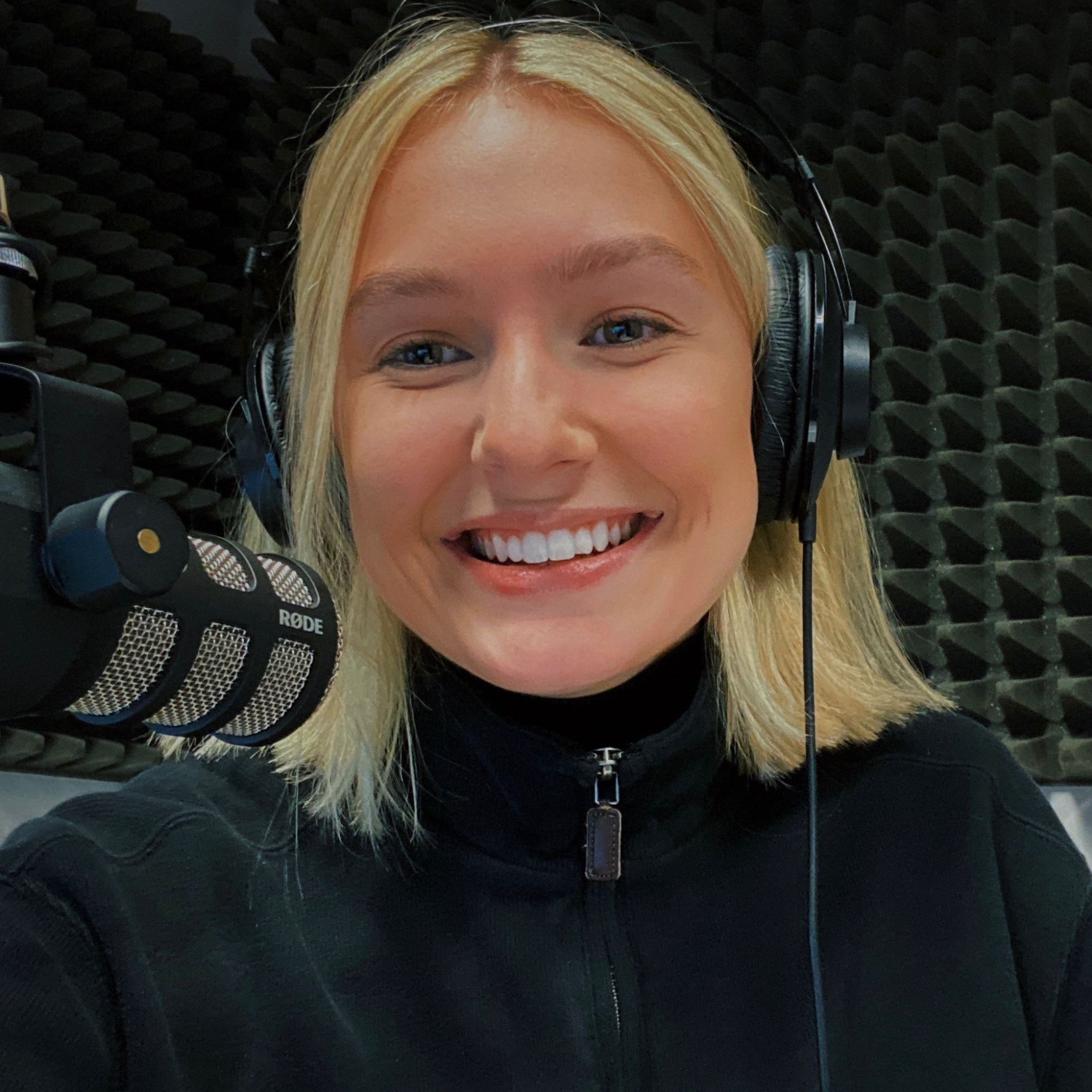 Natasha Tinsley creates multimedia content for LAB, contributing to The Heart of Our Earth and Women Resisting Violence projects. As a Foreign Correspondent at Venezuela’s El Nacional, Natasha regularly reports on Venezuelan migration and European affairs from Spain and the UK. She collaborates with the Complutense University of Madrid as a researcher and translator on the Hearing New Voices of Venezuelan Migrant Women project. In 2020 she began broadcasting on radio in Valparaíso, Chile, covering the country’s social outbreak and upcoming constitutional referendum. Natasha is a member of the XpressionFM News Team at the University of Exeter and hosts a weekly show on Latin American culture.
Natasha Tinsley creates multimedia content for LAB, contributing to The Heart of Our Earth and Women Resisting Violence projects. As a Foreign Correspondent at Venezuela’s El Nacional, Natasha regularly reports on Venezuelan migration and European affairs from Spain and the UK. She collaborates with the Complutense University of Madrid as a researcher and translator on the Hearing New Voices of Venezuelan Migrant Women project. In 2020 she began broadcasting on radio in Valparaíso, Chile, covering the country’s social outbreak and upcoming constitutional referendum. Natasha is a member of the XpressionFM News Team at the University of Exeter and hosts a weekly show on Latin American culture.
Jan Rocha
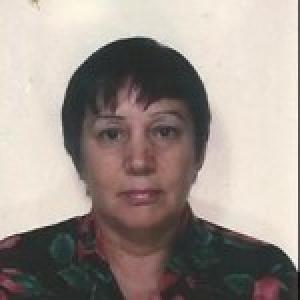
Council of Management
Marcela López Levy (Chair), Hazel Plunkett (Treasurer), David Lehmann (Company Secretary), Nick Caistor, Linda Etchart, Sue Branford, Grace Livingstone, Henrique Tavares-Furtado, Fiona Watson, Cathy McIlwaine, Ulises Moreno-Tabarez, Marilyn Thomson, Andrei Gómez-Suarez, Clare Tawney, Ivette Hernández, Elva Narcia, Jamille Pinheiro Dias. (Also Trustees:) Shafik Meghji, David Treece, Louise Morris, George Gelber, Patrick Wilcken.
Marcela López Levy
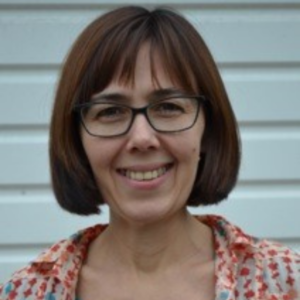 Marcela López Levy is an Argentinian researcher and writer who has worked with social justice organisations in the UK and Latin America for the past two decades. She has analysed politics in Latin America and carried out research into the history and politics of welfare in Argentina. She is currently integrating her training in psychology with social theory, looking at the importance of the imagination in social movements and struggles. Her most recent book is Argentina under the Kirchners: The legacy of left populism (2017). Marcela was Editor at the Latin America Bureau between 1997 and 2004, shaping the research and publishing programme; she also established LAB’s web presence in 1998. She has a Masters in Social Anthropology (Goldsmiths College) and holds a doctorate in political sociology from the University of London (Institute for the Americas). Her doctoral research was on the politics of social policy creation in Argentina and the expansion of social protection after 2003. She is the author of We are Millions: neo-liberalism and new forms of political action in Argentina (2004) and Bolivia Profile (2002).
Marcela López Levy is an Argentinian researcher and writer who has worked with social justice organisations in the UK and Latin America for the past two decades. She has analysed politics in Latin America and carried out research into the history and politics of welfare in Argentina. She is currently integrating her training in psychology with social theory, looking at the importance of the imagination in social movements and struggles. Her most recent book is Argentina under the Kirchners: The legacy of left populism (2017). Marcela was Editor at the Latin America Bureau between 1997 and 2004, shaping the research and publishing programme; she also established LAB’s web presence in 1998. She has a Masters in Social Anthropology (Goldsmiths College) and holds a doctorate in political sociology from the University of London (Institute for the Americas). Her doctoral research was on the politics of social policy creation in Argentina and the expansion of social protection after 2003. She is the author of We are Millions: neo-liberalism and new forms of political action in Argentina (2004) and Bolivia Profile (2002).
Hazel Plunkett
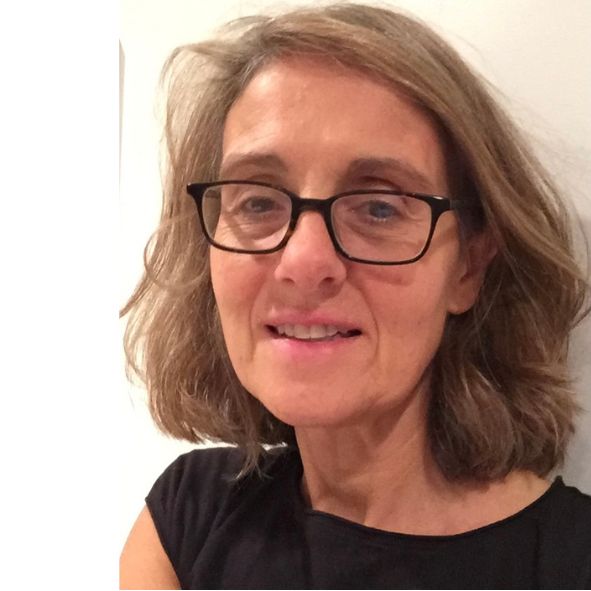
Hazel Plunkett works as a consultant supporting health NGOs on program design, development and management. She previously worked for a range of international NGOs based in the UK, United States and East Africa. Her interest in Latin America emerged during her time at Sussex University where she studied International Relations and met visiting Nicaraguan students. She started her working life at the Nicaragua Solidarity Campaign in 1990 and took on various Central America-related program positions with the Nicaragua Health Fund, One World Action and War on Want through the 1990s. Since 2002, she has largely focused on health programming in East and Southern Africa, living and working in Tanzania and Kenya for eight years. She has a MSc in Health Education from King’s College London.
Jamille Pinheiro Dias
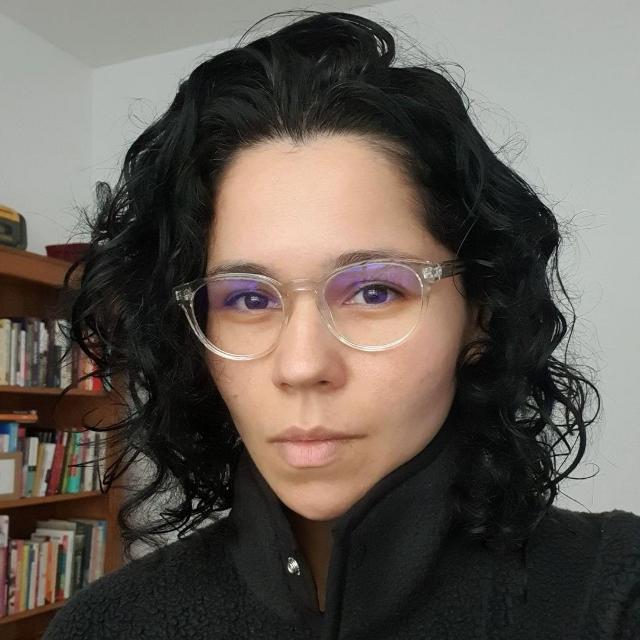
Nick Caistor
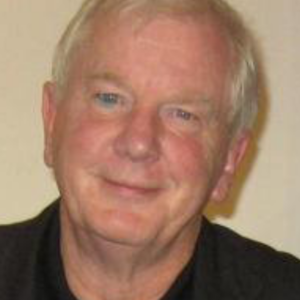 Nick Caistor lived in Argentina in the 1970s, and on his return to Britain became involved with human rights work and with LAB. He edited the English version of Nunca Mas, the report on the disappeared in Argentina, and with LAB has published Special Briefs on Argentina and Chile, and Peru: Picking up the Pieces, which examines the country’s return to democracy after Fujimori. He has been a member of the board of the Argentinian Human Rights Committee, the Chile Human Rights Committee, and the Peru Support Group. He worked as a BBC Latin American analyst for 14 years, and has published biographies of Octavio Paz (Reaktion Books); Che Guevara (Macmillan), and Fidel Castro (Reaktion Books), as well as books on Mexico City and Buenos Aires for Signal Books. He is the author of LAB’s new publication Mexico Inside Out.
Nick Caistor lived in Argentina in the 1970s, and on his return to Britain became involved with human rights work and with LAB. He edited the English version of Nunca Mas, the report on the disappeared in Argentina, and with LAB has published Special Briefs on Argentina and Chile, and Peru: Picking up the Pieces, which examines the country’s return to democracy after Fujimori. He has been a member of the board of the Argentinian Human Rights Committee, the Chile Human Rights Committee, and the Peru Support Group. He worked as a BBC Latin American analyst for 14 years, and has published biographies of Octavio Paz (Reaktion Books); Che Guevara (Macmillan), and Fidel Castro (Reaktion Books), as well as books on Mexico City and Buenos Aires for Signal Books. He is the author of LAB’s new publication Mexico Inside Out.
David Treece
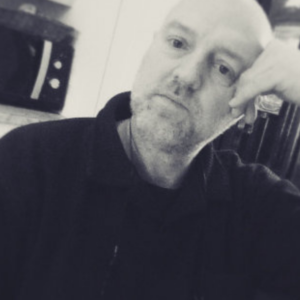 David Treece is Camoens Professor of Portuguese in the Department of Spanish, Portuguese and Latin American Studies at King’s College London, where he directed the Centre for the Study of Brazilian Culture and Society from 1996 to 2010. He is the author of Exiles, Allies, Rebels: Brazil’s Indianist Movement, Indigenist Politics, and the Imperial Nation-State (Greenwood), the co-author of The Gathering of Voices: the twentieth-century poetry of Latin America (Verso, 1992), and has been co-editor of the Journal of Latin American Cultural Studies and Portuguese Studies journal. Between 1984 and 1987 David worked on indigenous land rights issues for the NGO Survival International. From the early 1990s he worked on modern Brazilian poetry and fiction and their translation. Since 2000 his work has concentrated on Brazilian popular music, and the culture and politics of race and Afro-Brazilian identity. His book Brazilian Jive: From Samba to Bossa and Rap (Reaktion) brings together these most recent research interests. David sings with the Brazilian vocal group Nossa Voz.
David Treece is Camoens Professor of Portuguese in the Department of Spanish, Portuguese and Latin American Studies at King’s College London, where he directed the Centre for the Study of Brazilian Culture and Society from 1996 to 2010. He is the author of Exiles, Allies, Rebels: Brazil’s Indianist Movement, Indigenist Politics, and the Imperial Nation-State (Greenwood), the co-author of The Gathering of Voices: the twentieth-century poetry of Latin America (Verso, 1992), and has been co-editor of the Journal of Latin American Cultural Studies and Portuguese Studies journal. Between 1984 and 1987 David worked on indigenous land rights issues for the NGO Survival International. From the early 1990s he worked on modern Brazilian poetry and fiction and their translation. Since 2000 his work has concentrated on Brazilian popular music, and the culture and politics of race and Afro-Brazilian identity. His book Brazilian Jive: From Samba to Bossa and Rap (Reaktion) brings together these most recent research interests. David sings with the Brazilian vocal group Nossa Voz.
Cathy McIlwaine
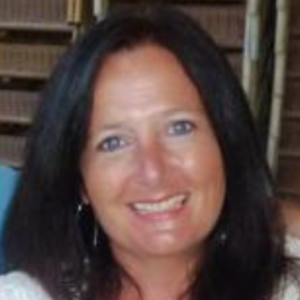 Cathy McIlwaine is Professor of Development Geography in the Department of Geography, King’s College London. Her research focuses on gender and development issues in the global South, and on transnational migration in London with a specific focus on the Latin American community from the perspective of livelihoods, citizenship and gender-based violence. She is also increasingly working on the role of the arts in research on marginality. She is currently working on a project on Violence Against Women and Girls among Brazilian migrants in London and Rio de Janeiro (funded by ESRC) and another on the experiences of migrant women and VAWG in London, both with the Latin American Women’s Rights Service. She has published eleven books including Dores que Libertam: Falas de Mulheres das Favelas sa Mare, no Rio de Janeiro sobre Violencias (Appris Editora) and Cities, Slums and Gender in the Global South (Routledge), and over 40 journal papers. She is a trustee at the charity, Latin Elephant and an advisor for the Latin American Women’s Rights Service. Websites: https://www.kcl.ac.uk/people/cathy-mcilwaine
Cathy McIlwaine is Professor of Development Geography in the Department of Geography, King’s College London. Her research focuses on gender and development issues in the global South, and on transnational migration in London with a specific focus on the Latin American community from the perspective of livelihoods, citizenship and gender-based violence. She is also increasingly working on the role of the arts in research on marginality. She is currently working on a project on Violence Against Women and Girls among Brazilian migrants in London and Rio de Janeiro (funded by ESRC) and another on the experiences of migrant women and VAWG in London, both with the Latin American Women’s Rights Service. She has published eleven books including Dores que Libertam: Falas de Mulheres das Favelas sa Mare, no Rio de Janeiro sobre Violencias (Appris Editora) and Cities, Slums and Gender in the Global South (Routledge), and over 40 journal papers. She is a trustee at the charity, Latin Elephant and an advisor for the Latin American Women’s Rights Service. Websites: https://www.kcl.ac.uk/people/cathy-mcilwaine
David Lehmann
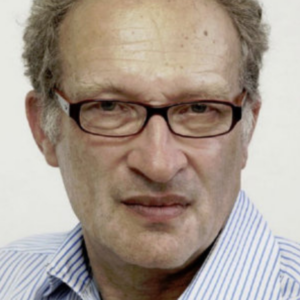 David Lehmann (Company Secretary) is a social scientist who has worked all his life on and in Latin America, writing on subjects such as agricultural development, religion and multiculturalism. He has worked in Chile, Ecuador, Mexico and Brazil and has accumulated a wide-ranging knowledge of peoples, histories and ideas over several decades. He travels to the region at least once every year and maintains a wide range of active contacts. David has also taught for several decades at the University of Cambridge and has held visiting positions at universities in Ecuador, Brazil, France, Spain and Israel. David has been active in movements for the defence of human rights, especially in Chile. David’s main works on Latin America are Democracy and Development in Latin America: Economics, politics and religion in the post war period, and Struggle for the Spirit: popular culture and religious transformation in Brazil and Latin America. In 2007 he began to work on multiculturalism and affirmative action policies in Brazil, Mexico and Peru. His latest project is about the building of a new Temple of Solomon in São Paulo by the Universal Church of the Kingdom of God. He posts information about his work at: www.davidlehmann.org/adlehman
David Lehmann (Company Secretary) is a social scientist who has worked all his life on and in Latin America, writing on subjects such as agricultural development, religion and multiculturalism. He has worked in Chile, Ecuador, Mexico and Brazil and has accumulated a wide-ranging knowledge of peoples, histories and ideas over several decades. He travels to the region at least once every year and maintains a wide range of active contacts. David has also taught for several decades at the University of Cambridge and has held visiting positions at universities in Ecuador, Brazil, France, Spain and Israel. David has been active in movements for the defence of human rights, especially in Chile. David’s main works on Latin America are Democracy and Development in Latin America: Economics, politics and religion in the post war period, and Struggle for the Spirit: popular culture and religious transformation in Brazil and Latin America. In 2007 he began to work on multiculturalism and affirmative action policies in Brazil, Mexico and Peru. His latest project is about the building of a new Temple of Solomon in São Paulo by the Universal Church of the Kingdom of God. He posts information about his work at: www.davidlehmann.org/adlehman
Shafik Meghji
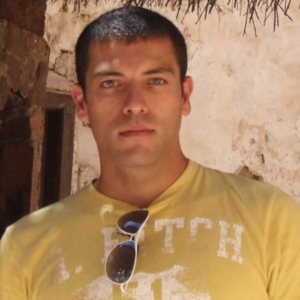 Shafik Meghji is a travel writer, journalist and editor based in south London. He is the author of Crossed Off The Map: Travels in Bolivia. After graduating from the University of Warwick in Politics and International studies, he won the Scott Trust Bursary to study a postgraduate diploma in newspaper journalism at City University, London. Shafik subsequently worked as a news and sports reporter for the Evening Standard and wrote for newspapers such as the Guardian and the Independent. A former resident of Buenos Aires, he has co-authored more than 20 guidebooks, including the Rough Guides to Argentina, Bolivia, Chile, Costa Rica and Ecuador, as well as the Buenos Aires Essential Guide app. His travel writing has been published in several anthologies, and he writes regularly for newspapers, magazines and websites around the world, including the South China Morning Post. Shafik is an editorial consultant for Amnesty International UK, a fellow of the Royal Geographical Society and a member of the British Guild of Travel Writers. He blogs at www.unmappedroutes.com and tweets @ShafikMeghji.
Shafik Meghji is a travel writer, journalist and editor based in south London. He is the author of Crossed Off The Map: Travels in Bolivia. After graduating from the University of Warwick in Politics and International studies, he won the Scott Trust Bursary to study a postgraduate diploma in newspaper journalism at City University, London. Shafik subsequently worked as a news and sports reporter for the Evening Standard and wrote for newspapers such as the Guardian and the Independent. A former resident of Buenos Aires, he has co-authored more than 20 guidebooks, including the Rough Guides to Argentina, Bolivia, Chile, Costa Rica and Ecuador, as well as the Buenos Aires Essential Guide app. His travel writing has been published in several anthologies, and he writes regularly for newspapers, magazines and websites around the world, including the South China Morning Post. Shafik is an editorial consultant for Amnesty International UK, a fellow of the Royal Geographical Society and a member of the British Guild of Travel Writers. He blogs at www.unmappedroutes.com and tweets @ShafikMeghji.
Louise Morris
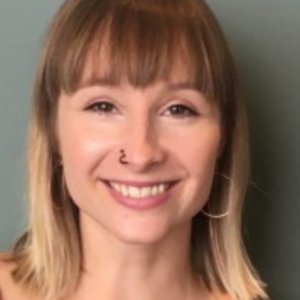 Louise Morris is a journalist, audio and TV producer. She specialises in women’s rights and the intersection between art and politics. Louise works primarily in radio, producing and presenting documentaries for BBC R4 and producing for NPR. She previously worked producing a daily TV magazine programme. She has written for The Wire, Delayed, Gratification, and BBC News Online, among others. For LAB’s Voices of Latin America book, she wrote the chapters, Fighting Machismo: Women on the Front Line; and Cultural Resistance. She is currently producing a podcast series for our Women Resisting Violence project in collaboration with King’s College London.
Louise Morris is a journalist, audio and TV producer. She specialises in women’s rights and the intersection between art and politics. Louise works primarily in radio, producing and presenting documentaries for BBC R4 and producing for NPR. She previously worked producing a daily TV magazine programme. She has written for The Wire, Delayed, Gratification, and BBC News Online, among others. For LAB’s Voices of Latin America book, she wrote the chapters, Fighting Machismo: Women on the Front Line; and Cultural Resistance. She is currently producing a podcast series for our Women Resisting Violence project in collaboration with King’s College London.
Fiona Watson
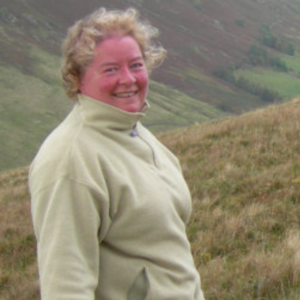 Fiona Watson is field and research director at Survival International, an international NGO which works with tribal peoples to defend their lives, protect their lands and determine their own futures. She has been with Survival since 1990 and worked on many campaigns for indigenous peoples’ rights in Brazil, Venezuela and Guyana. In the 1980s she participated in a joint Brazilian-UK scientific project run by the Institute of Amazon Research (INPA) in Manaus and the Royal Geographical Society in London, researching into the social and environmental impacts of deforestation in the northern Amazon state of Roraima in Brazil. She has an MA in Hispanic Languages and Literature from St Andrews University, Scotland, for which she did one year’s field work, living in an Quechua indigenous community in the Peruvian Andes.
Fiona Watson is field and research director at Survival International, an international NGO which works with tribal peoples to defend their lives, protect their lands and determine their own futures. She has been with Survival since 1990 and worked on many campaigns for indigenous peoples’ rights in Brazil, Venezuela and Guyana. In the 1980s she participated in a joint Brazilian-UK scientific project run by the Institute of Amazon Research (INPA) in Manaus and the Royal Geographical Society in London, researching into the social and environmental impacts of deforestation in the northern Amazon state of Roraima in Brazil. She has an MA in Hispanic Languages and Literature from St Andrews University, Scotland, for which she did one year’s field work, living in an Quechua indigenous community in the Peruvian Andes.
Ulises Moreno-Tabarez
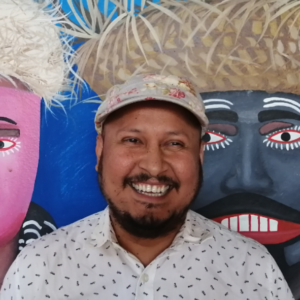 Dr Ulises Moreno-Tabarez is an interdisciplinary geographer working at the intersections of performance and urban studies. He serves as a core Editor of the peer-reviewed academic journal ‘City: Analysis of Urban Change, Theory, Action’. He holds a PhD in Human Geography and Urban Studies from the LSE. As a Postdoctoral Associate there, his current research project further develops what he calls spectral geographies, spatial politics and poetics of presence and absence concerning political-ecological and cultural lifescapes. He uses ethnographic and participatory research methods to examine how human-nature relationships are re-negotiated due to climate change and state deployments of racialised development. One of his core concerns is the historical developments of Blackness and Indigeneity as intertwined spectral subjectivities, remnants of slavery and colonialism, that indicate Afro-Indigenous wilful lifeways and creative resistance against intersecting forms of oppression.
Dr Ulises Moreno-Tabarez is an interdisciplinary geographer working at the intersections of performance and urban studies. He serves as a core Editor of the peer-reviewed academic journal ‘City: Analysis of Urban Change, Theory, Action’. He holds a PhD in Human Geography and Urban Studies from the LSE. As a Postdoctoral Associate there, his current research project further develops what he calls spectral geographies, spatial politics and poetics of presence and absence concerning political-ecological and cultural lifescapes. He uses ethnographic and participatory research methods to examine how human-nature relationships are re-negotiated due to climate change and state deployments of racialised development. One of his core concerns is the historical developments of Blackness and Indigeneity as intertwined spectral subjectivities, remnants of slavery and colonialism, that indicate Afro-Indigenous wilful lifeways and creative resistance against intersecting forms of oppression.
Marilyn Thomson
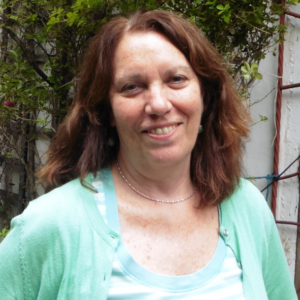 Marilyn Thomson lived and worked in Latin America over many years, carrying out research, working with grassroots women’s organisations, universities, and international NGOs. She has been active in solidarity since the 1970s and was the co-director and a founding member of the UK Central America Women’s Network (CAWN), which was set up in 1992 and supported women’s organisations and campaigns in the region until it was forced to close in 2017. Marilyn currently works as a gender and social development consultant in London, carrying out research and evaluations, training, and capacity building. She works on issues for migrant and refugee women, violence against women and girls, women’s economic literacy and the care economy. She has written articles and developed guidelines and toolkits on a range of gender and development issues. Marilyn is currently a member of the advisory committee of the Latin American Women’s Rights Service in London and is also a trustee of Children Change Colombia, a UK charity supporting children’s projects in Colombia. She is a key member of the team working on the Women Resisting Gendered and Intersectional Violence project.
Marilyn Thomson lived and worked in Latin America over many years, carrying out research, working with grassroots women’s organisations, universities, and international NGOs. She has been active in solidarity since the 1970s and was the co-director and a founding member of the UK Central America Women’s Network (CAWN), which was set up in 1992 and supported women’s organisations and campaigns in the region until it was forced to close in 2017. Marilyn currently works as a gender and social development consultant in London, carrying out research and evaluations, training, and capacity building. She works on issues for migrant and refugee women, violence against women and girls, women’s economic literacy and the care economy. She has written articles and developed guidelines and toolkits on a range of gender and development issues. Marilyn is currently a member of the advisory committee of the Latin American Women’s Rights Service in London and is also a trustee of Children Change Colombia, a UK charity supporting children’s projects in Colombia. She is a key member of the team working on the Women Resisting Gendered and Intersectional Violence project.
Henrique Tavares Furtado
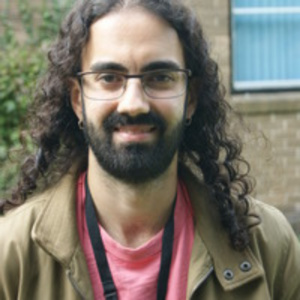 Henrique is a Senior Lecturer in Politics and International Relations in the Department of Social Sciences at the University of the West of England. His research investigates processes of accountability in the wake of mass atrocities, focusing on the links between the memory of political violence and the implementation of transitional/post-conflict justice. His other research interests involve political mobilisations of the language of trauma, Latin American politics, decolonial conceptualisations of violence and critiques of exceptionalism in Global politics. His work has appeared in the journals Security Dialogue, Critical Studies on Terrorism, Critical Military Studies, the edited volume Politics of Anxiety and the online magazine Open Democracy. He is a LAB Director and Trustee.
Henrique is a Senior Lecturer in Politics and International Relations in the Department of Social Sciences at the University of the West of England. His research investigates processes of accountability in the wake of mass atrocities, focusing on the links between the memory of political violence and the implementation of transitional/post-conflict justice. His other research interests involve political mobilisations of the language of trauma, Latin American politics, decolonial conceptualisations of violence and critiques of exceptionalism in Global politics. His work has appeared in the journals Security Dialogue, Critical Studies on Terrorism, Critical Military Studies, the edited volume Politics of Anxiety and the online magazine Open Democracy. He is a LAB Director and Trustee.
Dr Grace Livingstone
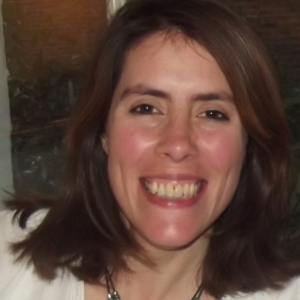 Dr Grace Livingstone is a journalist and academic specialising in Latin American affairs. She was a correspondent for The Guardian in Venezuela and has also reported for the BBC World Service, The Independent on Sunday, The Observer and The New Statesman. She is an affiliated lecturer at the Centre of Latin American Studies, University of Cambridge. Her publications include: Inside Colombia: Drugs, Democracy and War (LAB, 2003) and America’s Backyard: Latin America and the United States from the Monroe Doctrine to the War on Drugs, (Bloomsbury 2009) and Britain and the Dictatorships of Argentina and Chile 1973-82: Foreign Policy, Corporations and Social movements (Palgrave Macmillan, 2018). See more about Grace at: https://grace-livingstone.com/
Dr Grace Livingstone is a journalist and academic specialising in Latin American affairs. She was a correspondent for The Guardian in Venezuela and has also reported for the BBC World Service, The Independent on Sunday, The Observer and The New Statesman. She is an affiliated lecturer at the Centre of Latin American Studies, University of Cambridge. Her publications include: Inside Colombia: Drugs, Democracy and War (LAB, 2003) and America’s Backyard: Latin America and the United States from the Monroe Doctrine to the War on Drugs, (Bloomsbury 2009) and Britain and the Dictatorships of Argentina and Chile 1973-82: Foreign Policy, Corporations and Social movements (Palgrave Macmillan, 2018). See more about Grace at: https://grace-livingstone.com/
George Gelber
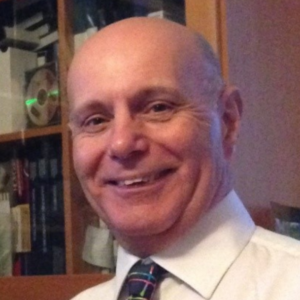 George Gelber works as an independent consultant, most recently focusing on food security and mining. After acquiring an MA in Latin American Government from Essex University, he taught and worked in Chile until 1973, leaving two months after the coup. In the UK he was programme officer for Latin America for Christian Aid until 1982. He then worked on human rights in Central America at CIIR (now Progressio) at a time when the region was convulsed by civil wars and covert and not so covert US intervention. After joining CAFOD in 1989, he set up the Public Policy Unit which in the 1990s worked mainly on debt, structural adjustment and trade. Campaigns on the electronics industry in Guadalajara and mining in Honduras maintained the Latin America connection.
George Gelber works as an independent consultant, most recently focusing on food security and mining. After acquiring an MA in Latin American Government from Essex University, he taught and worked in Chile until 1973, leaving two months after the coup. In the UK he was programme officer for Latin America for Christian Aid until 1982. He then worked on human rights in Central America at CIIR (now Progressio) at a time when the region was convulsed by civil wars and covert and not so covert US intervention. After joining CAFOD in 1989, he set up the Public Policy Unit which in the 1990s worked mainly on debt, structural adjustment and trade. Campaigns on the electronics industry in Guadalajara and mining in Honduras maintained the Latin America connection.
Clare Tawney
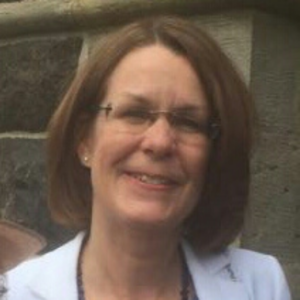 Clare Tawney recently retired from Practical Action Publishing, where she was Commissioning and Editorial Manager for 15 years. The books published ranged widely in the international development field, with a particular emphasis on books and journals to support development practitioners. Practical Action Publishing has co-published all of LAB’s titles since 2013. She loves LAB’s brand: ‘these books are wonderfully well-researched, readable and informative for the general reader; I’d always smile when a new LAB title landed in my inbox’.
Clare Tawney recently retired from Practical Action Publishing, where she was Commissioning and Editorial Manager for 15 years. The books published ranged widely in the international development field, with a particular emphasis on books and journals to support development practitioners. Practical Action Publishing has co-published all of LAB’s titles since 2013. She loves LAB’s brand: ‘these books are wonderfully well-researched, readable and informative for the general reader; I’d always smile when a new LAB title landed in my inbox’.
Patrick Wicken
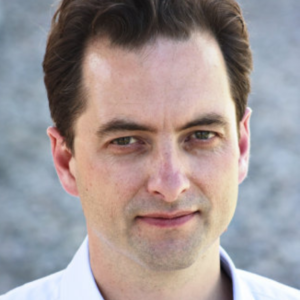 Patrick Wilcken is a Brazil specialist, human rights activist and writer, who is currently working as a senior researcher at the International Secretariat of Amnesty International in London. His research interests include policy developments in the criminal justice system, indigenous rights, housing policy and Brazil’s Truth Commission. He has over a decade of field experience, conducting research in indigenous reservations, the prison system, gang-dominated favelas, urban squats, cane plantations and areas of rural conflict across Brazil. He is the author of two acclaimed non-fiction books: Empire Adrift: the Portuguese Court in Rio de Janeiro 1908-21 in Rio de Janeiro and Claude Lévi-Strauss the poet in the laboratory, published by Bloomsbury and Penguin. Patrick has also authored a substantial body of academic and non-academic articles for a range of different publications including the New Left Review, Index on Censorship , the Guardian and the Times Literary Supplement.
Patrick Wilcken is a Brazil specialist, human rights activist and writer, who is currently working as a senior researcher at the International Secretariat of Amnesty International in London. His research interests include policy developments in the criminal justice system, indigenous rights, housing policy and Brazil’s Truth Commission. He has over a decade of field experience, conducting research in indigenous reservations, the prison system, gang-dominated favelas, urban squats, cane plantations and areas of rural conflict across Brazil. He is the author of two acclaimed non-fiction books: Empire Adrift: the Portuguese Court in Rio de Janeiro 1908-21 in Rio de Janeiro and Claude Lévi-Strauss the poet in the laboratory, published by Bloomsbury and Penguin. Patrick has also authored a substantial body of academic and non-academic articles for a range of different publications including the New Left Review, Index on Censorship , the Guardian and the Times Literary Supplement.
